Canada’s economy and living standards are gradually disintegrating.
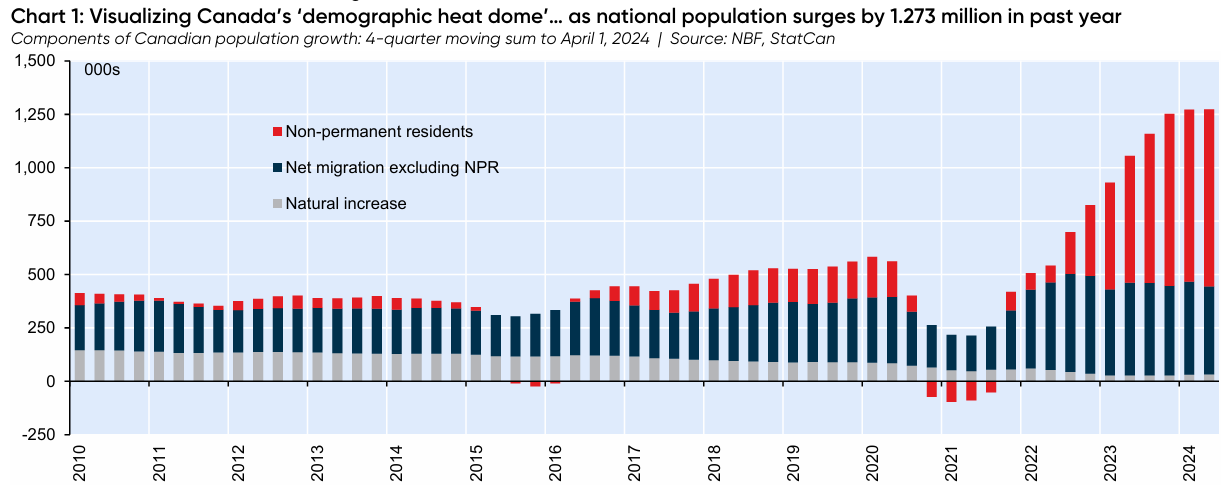
For years, Canada’s population has grown faster than business, infrastructure, and housing investment, resulting in what economists term “capital shallowing”. In turn, productivity growth has suffered.
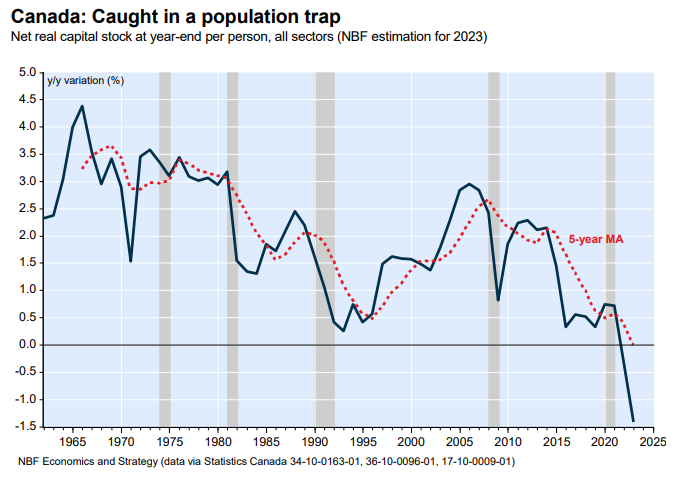
Economists at the National Bank of Canada explained the productivity predicament as follows:
“Why is our productivity record so bad? Could it be that our demographic ambitions are too high relative to the stock of capital available in the country?”
“This means that our population is growing so fast that we do not have enough savings to stabilize our capital-labour ratio and achieve an increase in GDP per capita”.
“Simply put, Canada is in a population trap for the first time in modern history”…
“We currently lack the infrastructure and capital stock in this country to adequately absorb current population growth and improve our standard of living”.
Scotiabank economists also showed that Canada’s productivity is suffering because the population is growing at a faster pace than business investment, infrastructure, and housing:
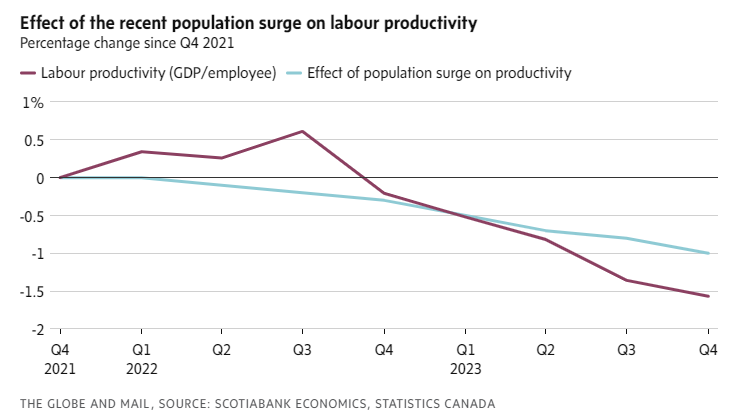
The result is that Canada’s per capita GDP has stagnated for around a decade:
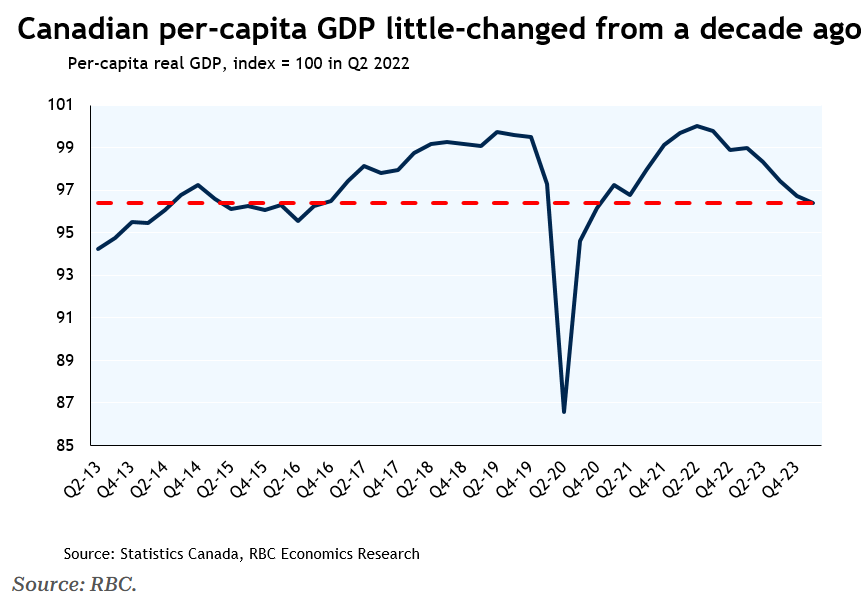
Comparing Canada’s GDP per capita performance with that of the neighbouring United States is damning and shows an economy that is gradually wrecking living standards:
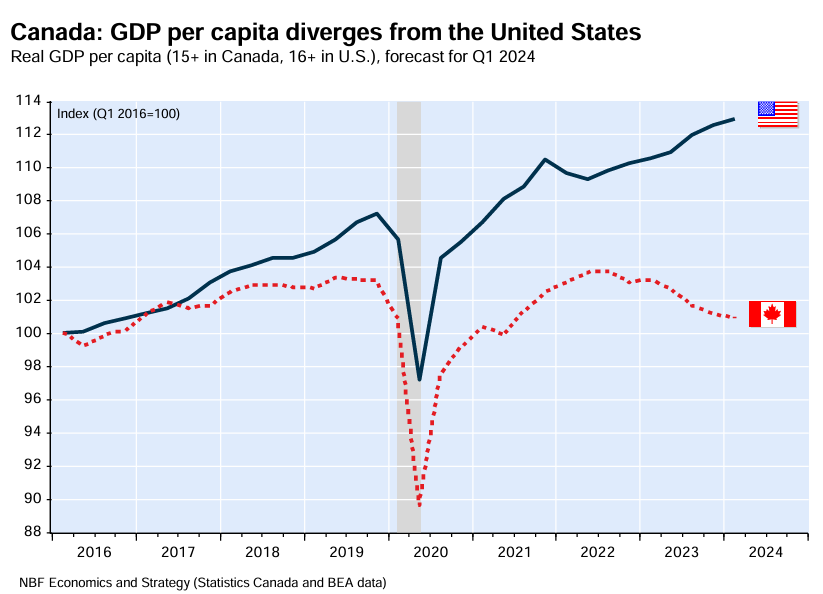
Indeed, a new study by Canada’s Fraser Institute warns that the country’s standard of living is on track for its worst decline in 40 years.
The study compared Canada’s three worst periods of decline over the last 40 years: the 1989 recession, the 2008 global financial crisis, and the current post-pandemic era.
The authors discovered that, unlike in prior recessions, Canada is not recovering this time. Something has broken:
Figure 10 presents the percentage decline in real GDP per person from the high-point to the low point, again extending the period from Q2 2019 to Q4 2023. In addition to being among the longest periods, it also has among the largest decreases in real GDP per person at 3.0%.
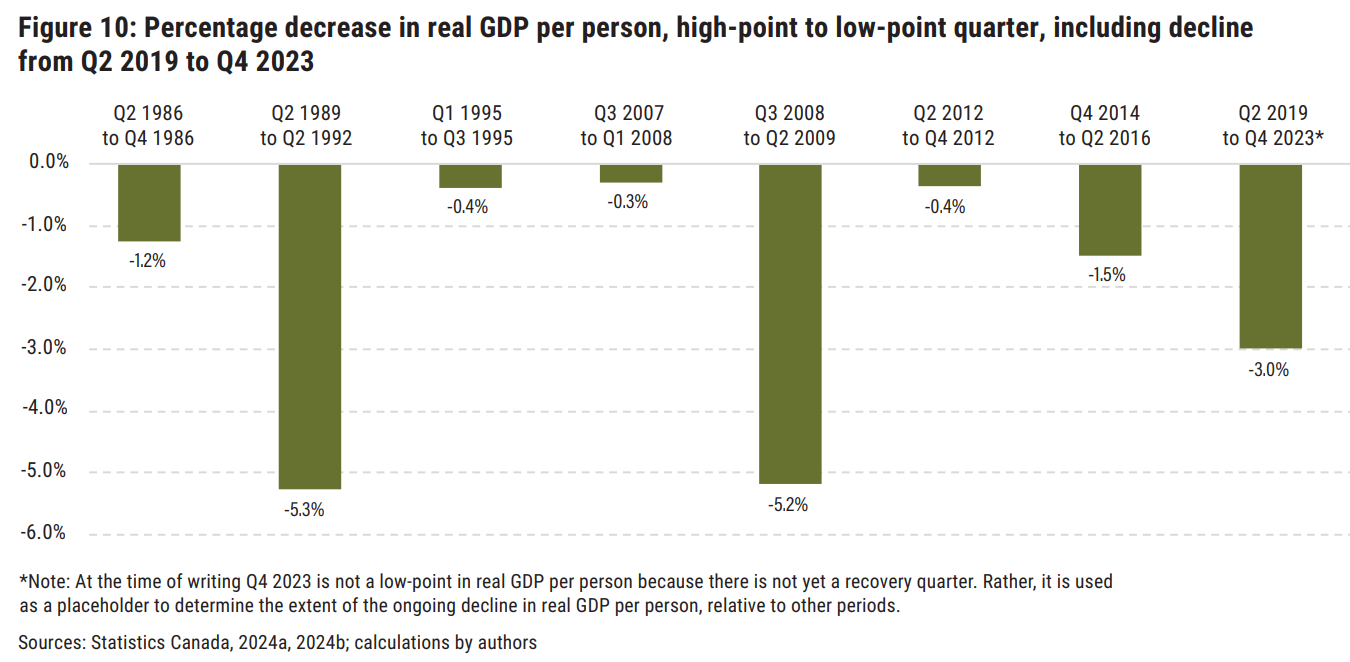
While the decline from Q2 2019 to Q4 2023 is still less than the declines from Q2 1989 to Q2 1992 and Q3 2008 to Q2 2009, it remains double that of all other periods. And again, as of Q4 2023 the decline is still ongoing and may deepen further…
We find that the experience since Q2 2019 is unlike any since 1985. As of Q4 2023, real GDP per person is below the level it was in Q2 2019, and despite a brief pause, the decline in real GDP per person should still be considered ongoing.
This represents one of the longest and deepest declines in real GDP per person since 1985, exceeded in both respects only by the decline and recovery that occurred from Q2 1989 to Q3 1994.
However, the decline in incomes since Q2 2019 is ongoing, and may still exceed the downturn of the late-1980s and early-1990s in length and depth of decline.
As I keep saying, Canada’s economic disintegration should serve as a warning to Australia.
Like Canada, decades of strong immigration-driven population growth has outpaced business, infrastructure, and housing investment, resulting in “capital shallowing” and declining productivity growth:
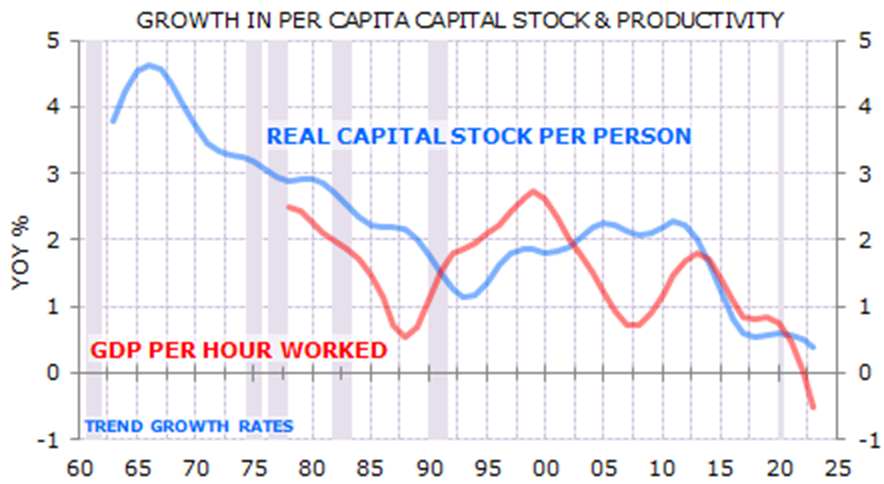
As a result, GDP per capita growth has collapsed, with Australia about to record its sixth consecutive quarterly decline in per capita GDP.
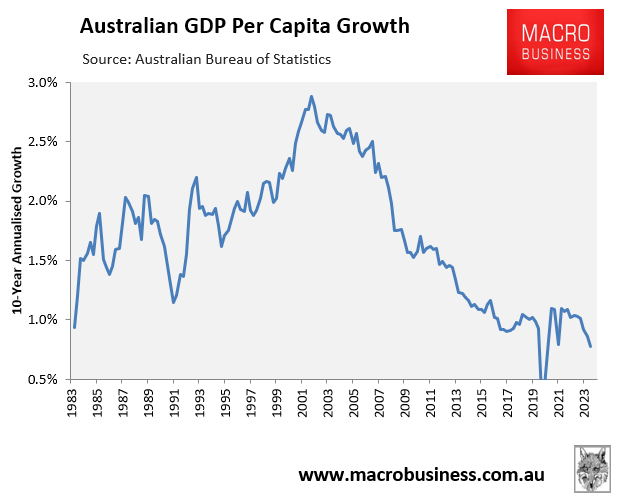
Both nations need to wean themselves from lazy immigration-driven growth and create sustainable, productive economies that work in the interests of incumbent residents, not oligopolistic firms.
Otherwise, both nations will remain caught in “population traps” with declining productivity, ongoing housing shortages, and endless per capita recessions.

